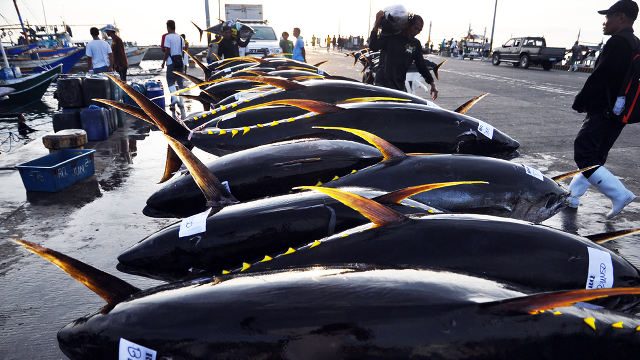SUMMARY
This is AI generated summarization, which may have errors. For context, always refer to the full article.

APIA, Samoa – Pacific island states expressed frustration Wednesday, December 3, at a lack of progress in talks aimed at protecting the region’s valuable tuna resources, accusing powerful faraway fishing nations of stalling on conservation measures.
The islands want the annual meeting of the influential Western and Central Pacific Fisheries Commission (WCPFC) in Samoa to cut tuna quotas in the region, which is the source of almost 60% of the global catch.
They have tabled proposals to help preserve key tuna species such as bigeye – prized for making sashimi in Asia, America and Europe – but say the so-called “distant water fishing nations” are reluctant to curb an industry worth an estimated $6.0 billion a year.
“I think it’s fair to say that the meeting so far has been a frustrating one for the FFA members,” said Wez Norris, deputy director-general at the Pacific Islands Forum Fisheries Agency (FFA), an umbrella group representing the island states.
“We haven’t seen detailed discussion on many of those proposals, but already in the very limited time they’ve had on the floor we’ve seen opposition to pretty much all of them.”
Norris said hopes of securing an agreement to preserve bigeye tuna before the meeting wraps up on Friday, December 5, were fading fast.
“There doesn’t seem to be a sense of urgency,” he said.
Scientists recently estimated that stocks of bigeye had fallen to just 16 percent of their “unfished biomass” – the population level before industrialized fishing began.
Norris said FFA proposals to improve management of other tuna species, such as albacore, and to better protect sharks were also being held back by the bigger players.
“Our message to the distant water fishing nations is: don’t just say no. If there is an issue that can be worked on, if there are amendments that can be made to the proposal, then let’s do that and let’s find a way forward,” he said.
The fishing fleets from distant water nations, which dominate fishing in the region, come from as far afield as Europe, China, the United States, South Korea, Japan and Taiwan.
FFA members include the Cook Islands, Kiribati, Samoa, Tonga, Solomon Islands, Papua New Guinea, and Vanuatu.
Many of the island nations have only a tiny landmass but control huge swathes of ocean, making the tuna fishery crucial to their economies.
“The consequences of not putting strong management measures in place are really that you risk the well-being of the fishery, and by extension, the livelihoods of Pacific countries,” said Amanda Nickson, director of global tuna conservation at the US-based Pew Charitable Trusts. – Rappler.com
Add a comment
How does this make you feel?
There are no comments yet. Add your comment to start the conversation.